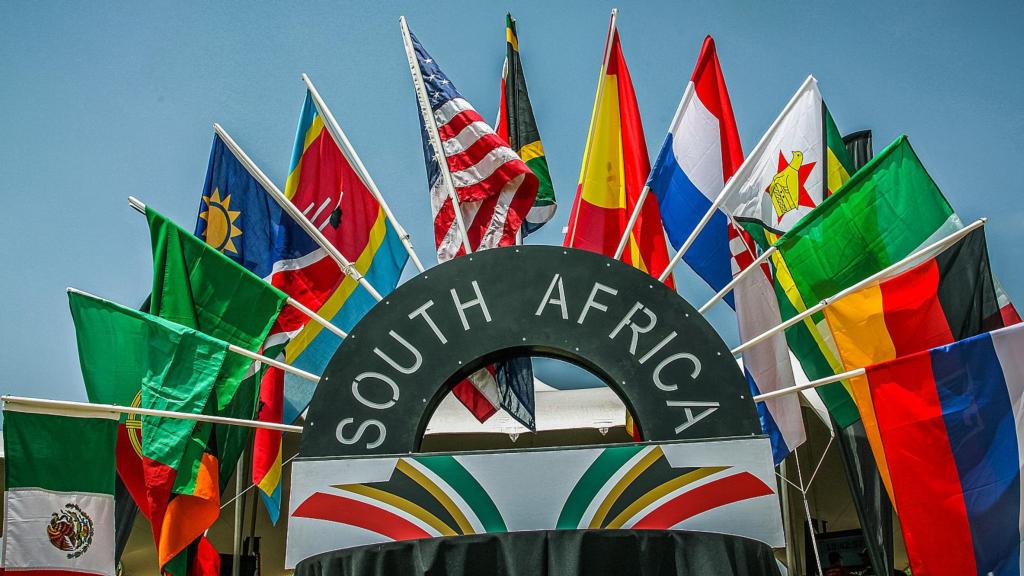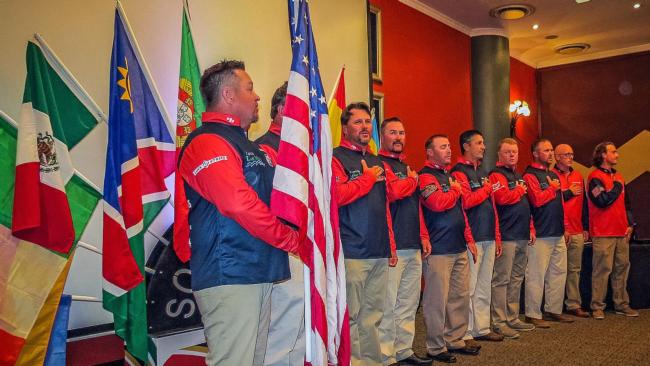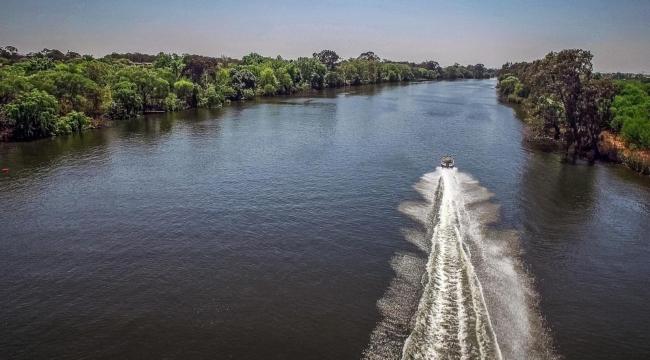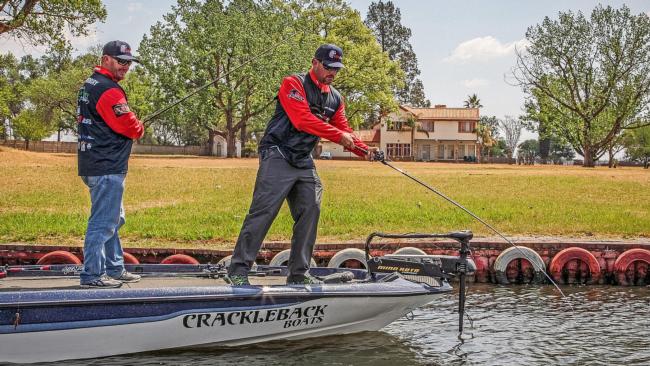XIII Black Bass World Championships Practice Report
U.S. team taking on the world on the Vaal River in South Africa

Editor’s note: FLW will provide daily recaps throughout the three-day competition, which concludes on Saturday.
VANDERBIJLPARK, SOUTH AFRICA (Oct. 4, 2017) – The South Africa Bass Angler Association (SABAA) is hosting 13 countries Oct. 2-8 in a highly competitive gold medal match at the XIII Black Bass World Championships. A coveted world bass fishing title hangs in the balance with an elite American team of pro anglers traveling 9,000 miles to take on the world.
The event takes place on the Vaal River, a major waterway one hour south of South Africa’s largest city, Johannesburg. The river remains a popular recreational venue due to its proximity to a major metropolis and a thriving infrastructure geared toward recreation and tourism. The river system has remained a bass fishing hot spot since the 1930s when the imported green fish were first introduced.
American pros Scott Martin (Team Captain), Fred Roumbanis, Mark Rose, Scott Canterbury, David Fritts, James Watson, David Dudley and Lionel Botha arrived on a cloudy Sunday morning and spent the remainder of Sunday and Monday recuperating from the energy-sapping trans-Atlantic flight of nearly 24 hours. Practice, which has concluded, took place Tuesday and Wednesday.
All 13 teams participated in a welcoming ceremony Tuesday night, where team captains carried the flags of their respective countries and marched into a greeting hall. One by one, team members held flags high and sang their national anthems. Then the flags of each country were placed into an arching display where they’ll remain throughout the week.
“Welcome to the world of international competitions. It’s the sport of bass fishing that we are all willing to share,” Wessie Wessels, SABAA administrator, told the group during his opening address.
The anglers will leave differences behind for good fishing, serious competition and unmitigated comradery, but make no mistake, rivalries remain palpable, and many eyes are cast upon the elite cadre of American pros who have travelled here from the North American birthplace of modern competitive bass fishing.
The five teams representing southern Africa – Zimbabwe, Swaziland, Namibia, Zambia and South Africa – have long anticipated an opportunity to challenge the best American anglers heads up in home waters. The remaining world teams, too, recognize the consequential showdown.
“It’s very exciting to compete against the American pros. We follow them in the magazines in our country. We will see,” says Simone Bruccoleri, Team Italy vice captain.
“We watch these guys all the time on television,” adds Richard Grant of Team Namibia. “They are great fishermen, and we look forward to competing against them.”
The American team remains upbeat. David Dudley reveals one big U.S. edge when he says that each team member fishes differently – a potentially high caliber method of dissecting the river into successful fishing patterns. Another secret weapon is American team member Lionel Botha, born and raised in South Africa, soon to be a USA citizen and no stranger to the Vaal.
“I haven’t fished the Vaal for eight or nine years, but it looks the same, and my sources say it fishes the same,” says Botha with an emotionless poker face.
Current conditions
It’s late spring in the Southern Hemisphere, and bass remain in various phases of the spawn. Bass in the northern Africa zones, closer to the equator, have completed the annual ritual, while others to the south, such as the Vaal River, are engaged in nest building, guarding and egg laying.
“I call it a ‘game of thirds,’” says Hennie du Preez, South Africa team manager. “Some are on the nest, some are done and some are waiting to come up. It’s a matter of figuring the best fishing approach.”
Southern Africa maintains status as a world class trophy bass destination. Florida bass were brought here from the southern states of America in the late 1970s and early 1980s, thanks in large part to the efforts of B.A.S.S. founder Ray Scott. Many regions of southern Africa regularly produce bass over 12 pounds with individual trophies breaking the 18-pound threshold.
Unfortunately, the Vaal is not regarded as a trophy fishery. An occasional 8-pounder can be drawn from the current, but the average bass weighs somewhere around 2 pounds. The river can be extremely technical, hot one day and dead the next.
Mike Milligan, USA team manager, and Darryn Van Heerden, a veteran top-tier South African competitive angler, expect big results at the XIII Black Bass World Championships. Both anglers agree that each team will need a daily bag of 14 or 15 pounds and an aggregate daily team bag of about 40 pounds to claim a medal.
“I fished the river about three weeks ago, before the cutoff, and averaged 3 pounds for my five-fish bag,” says Van Heerden. “The river is fishing better than it has for years.”
The fickle nature of the Vaal may very well dictate final bag weights. The river system can change in a day, let alone three weeks. To complicate predictions, a frontal system is on the way, expected to arrive late Wednesday and into Thursday.
David Fritts, USA team member and angling pro, says the American squad found fish during early practice and remains close to putting final touches on a solid pattern. The American anglers are each fishing in quality boats donated for tournament use by a South African bass boat manufacturer called Crackleback Boats.
Fred Roumbanis says three of the boats have Lowrance mapping systems installed, and they are taking advantage of the maps to learn a lot about the river system. No doubt, the American team will be strong and experienced when the tourney starts on Thursday.
The American team and all others remain tight-lipped about tactics and successes during the practice sessions, but if body language can be deemed a reliable indicator, South Africa, Swaziland, Namibia and USA are smiling most.


